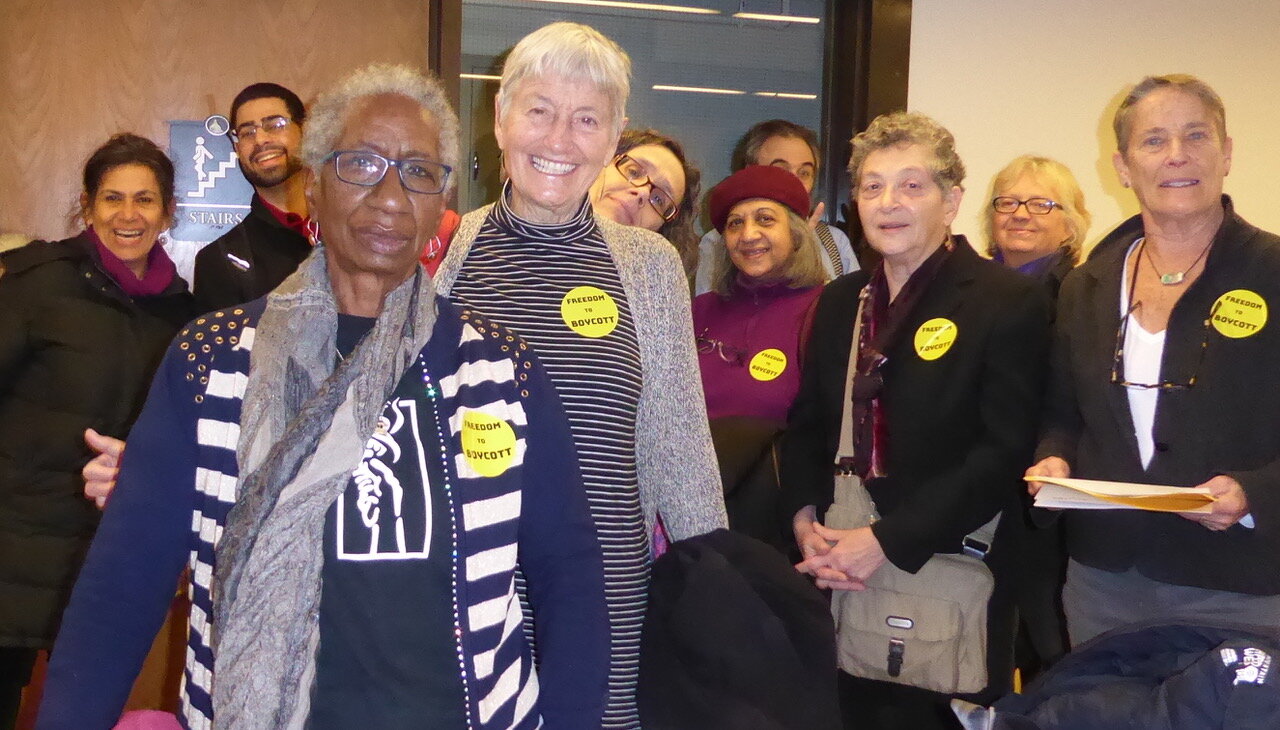Will the Commonwealth resist the steamroller effort to induce states across the country to pass anti-BDS legislation or issue anti-BDS executive orders?
To date 27 states have taken that step. On November 19, scores of Massachusetts residents wearing ‘Freedom to Boycott’ stickers showed their determination to prevent Massachusetts from becoming number 28.
The Alliance for Water Justice in Palestine is one of the groups that organized the resistance to the deceptively named ‘Act Prohibiting Discrimination in State Contracts’ (H.2719) and a companion bill (H.2722) that would penalize supporters of the Palestinian-led Boycott, Divestment, and Sanctions (BDS) movement.
H.2719 is identical word for word to a former bill, H.1685, which was resoundingly defeated after a hearing two years ago in which testimony was given by many of the more than 100 organizations across the state that had joined together in a ‘Freedom to Boycott Coalition.’
This 2019 attempt to undermine First Amendment freedoms and the right to engage in boycott activity in support of Palestinian rights was vigorously countered by dozens of testifiers from all walks of life who opposed the bill on constitutional grounds, as well as on political, human rights, religious, spiritual, economic, and practical grounds. Some spoke movingly of what they had personally witnessed during visits to Palestine.
Since the first hearing two years ago, three federal court rulings have blocked similar anti-BDS laws in Kansas, Arizona and Texas on First Amendment grounds. And the tide appears to be changing in terms of public opinion.
According to a Brookings poll conducted this September, 62% of Republicans, 80% of Democrats and 76% of Independents agree with this statement: “We should oppose laws that penalize people who boycott Israel because these laws infringe on the Constitutional right to free speech and peaceful protest.”
By next February we should know if members of the State Administration and Regulatory Oversight Committee got this surprisingly non partisan message.
Below the photo is a portion of a report by the Center for Middle East Policy at Brookings. Oct 2019
Anti-apartheid activist Caroline Hunter, who just returned from Palestine, arrives at the State House for the Nov. 19 hearing with a group of Freedom to Boycott activists. They testified that boycotts of Israel are not discrimination but are constitutionally protected speech intended to change Israel’s behavior. Mark Golden photo


